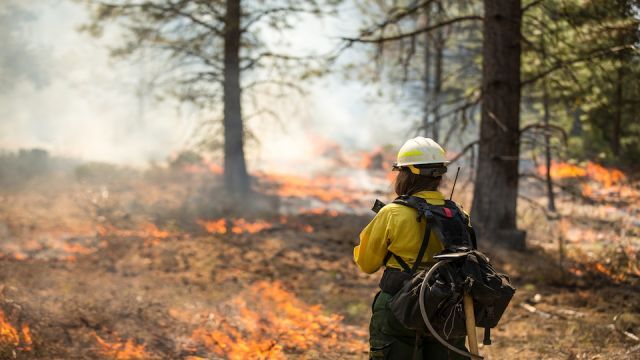
As summer temperatures rise and drought sets in for many parts of the country, prime wildfire season has arrived. With more people recreating in the wilderness and summer lightening plentiful, there are lots of ways that fires can start. Whether it be from mother nature or man, wildfires can have tragic consequences and even be fatal. Here are a few ways to stay safe this summer.
Forest fires can be devastating. These raging disasters tear through trees and homes in equal measure. Though it seems like a distant possibility, forest fires are more common than you may think and should be a serious consideration if you live in any dry or mountainous area.
While preparing for forest fires isn’t easy, there are still steps you can take such as laying out an evacuation route and staying apprised of the movement of fires close by. Surviving a forest fire is possible, but a plan is vital to ensure your safety and the safety of your loved ones.
Before a Forest Fire
With forest fires, prevention is key. There are many steps you can take to limit the likelihood of yourself and your home being affected by the uncontrollable blaze.
Tips:
- Keep all wood piles and debris cleared away from your home. Flammable objects just increase the chances that the fire will catch.
- Clean off roof and gutters of any pine needles or leaves.
- Make evacuation plans and practice them. Allow multiple rendezvous spots should your first become compromised.
- Put together a “go bag” should you need to evacuate at a moments notice.
- Have radios charged and extra batteries on hand to listen for evacuation orders.
During a Forest Fire
The danger from a wildfire can significantly increase as it spirals out of control and moves to residential areas. Understanding the necessary steps to take during this natural disaster event could mean the difference between life and death.
Tips:
- Evacuate quickly and calmly. A forest fire can rapidly spiral out of control, so it is best to get out as soon as possible.
- If you are evacuating too late and get caught in the fire, never try to outrun it. Find a body of water such as a pond or a river that you can take refuge in.
- Avoid inhaling smoke by breathing through a moist cloth. Always try to breathe air closest to the ground as this will be the cleanest.
- Locate and crate your pets if possible. They will not respond well to the smoke or intensity of a wildfire.
- Shut off any natural gas, propane, or other fuel supplies at the source.
After a Forest Fire
Just because a fire has been contained does not mean that it is safe to return to your home. Smoke will still be prevalent and can often cause more harm to your person than the actual fire.
Tips:
- Always wait until you receive an all clear from official channels before leaving your evacuation area.
- Asses any spots that are still burning and extinguish them if you can safely do so.
- Keep an eye out for displaced wildlife as they will often have been smoked out of their homes and may pose a threat to humans in the area.
Forest fires can be a dangerous disaster event and should be taken seriously. If you live anywhere that is at risk of wildfire, take some time to educate yourself on the policies and procedures at the city, state, and federal levels.
Stay safe!
-The Alternative Daily

